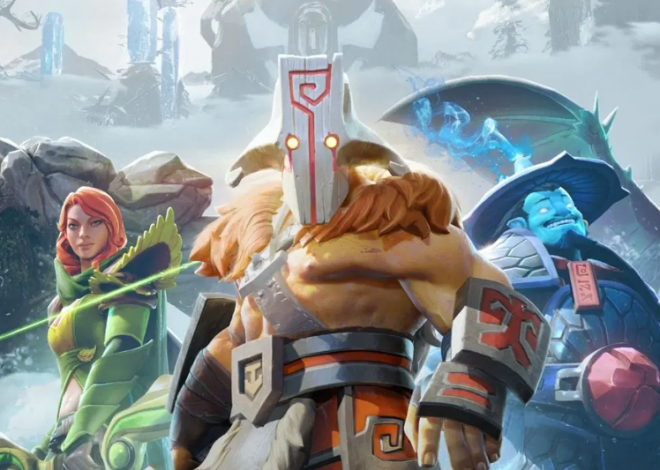
10 Years Ago: The Decline of Ubisoft – A Deep Dive into the Fall of a Gaming Giant
Ubisoft, once one of the most prominent names in the gaming industry, has experienced significant shifts over the past decade. 10 years ago, the company hit a major turning point that would mark the beginning of its steep decline. From being the visionary creators behind iconic franchises like Assassin’s Creed, Far Cry, and Rainbow Six, Ubisoft’s reputation has since been marred by mismanagement, creative stagnation, and a series of critical business decisions that ultimately led to its downfall. This article takes a comprehensive look at how the company fell from grace, exploring the pivotal moments that shaped its journey and the broader implications for the gaming industry as a whole.
The Rise of Ubisoft: A Golden Era
Ubisoft’s rise to prominence was built on a strong foundation of creativity and innovation. In the early 2000s, the company’s game development studios produced a series of groundbreaking titles that would shape the future of the gaming industry. With Assassin’s Creed, Ubisoft created one of the most beloved franchises in gaming history, known for its open-world exploration, deep storytelling, and revolutionary parkour mechanics. Other franchises, such as Far Cry and Splinter Cell, cemented the company’s position as a powerhouse in the gaming world.

During this period, Ubisoft was hailed for its commitment to quality and innovation. The company continually pushed the boundaries of what was possible in video games, from introducing vast open-world landscapes to experimenting with advanced AI systems and narrative-driven experiences. It was clear that Ubisoft had mastered the art of creating immersive, expansive worlds, and this success allowed the company to expand its influence across multiple gaming platforms.
However, what began as a golden era soon started to show cracks, and these cracks would grow wider over time, eventually leading to the company’s downfall.
The Turning Point: 2014 and the Decline Begins
The pivotal moment that marked the beginning of Ubisoft’s decline came in 2014, when the company faced a series of high-profile controversies and business missteps that set the stage for a rapid fall from grace.
The Watch Dogs Debacle: Broken Promises
In 2014, Ubisoft released Watch Dogs, one of the most highly anticipated titles of the year. The game promised to deliver a revolutionary open-world experience, blending cutting-edge graphics with an engaging story about hacking and cyber warfare. However, upon release, the game was heavily criticized for its lackluster graphics compared to the initial promotional material, as well as its repetitive gameplay and poor AI. The disconnect between what was promised and what was delivered left fans disillusioned and tarnished Ubisoft’s reputation.
Assassin’s Creed Unity: A Buggy Disaster
Another significant blow came with the release of Assassin’s Creed Unity in 2014. The game, which was set during the French Revolution, was widely anticipated as the next step in the beloved Assassin’s Creed series. Unfortunately, Unity was plagued by game-breaking bugs, glitches, and performance issues, especially on older consoles. The backlash was swift and intense, with players criticizing Ubisoft for releasing a game that felt unfinished and rushed to meet the holiday season.
The combination of the Watch Dogs debacle and the disastrous launch of Assassin’s Creed Unity led to a major crisis for Ubisoft. The company’s reputation for quality was in question, and the gaming community began to lose confidence in the brand.

Creative Stagnation: A Lack of Innovation
As the years passed, Ubisoft’s creative output became increasingly stagnant. The company began relying heavily on annualized franchises such as Assassin’s Creed, Far Cry, and Just Dance, rather than pushing the envelope with new, original concepts. This reliance on established franchises ultimately stifled innovation, and many fans began to feel that Ubisoft was churning out cookie-cutter sequels instead of fostering fresh, groundbreaking ideas.
The lack of new IPs in Ubisoft’s lineup further exacerbated the situation. While other major studios were experimenting with new genres and concepts, Ubisoft seemed content to rehash the same formulas year after year. Titles like Assassin’s Creed Syndicate and Far Cry 5 did little to excite fans, as they were often seen as more of the same, rather than bold new steps in game development.
Business Missteps: Monetization Over Quality
One of the most significant factors contributing to Ubisoft’s decline was its increasing focus on monetization strategies that prioritized profits over player experience. The introduction of microtransactions, loot boxes, and season passes in Ubisoft’s games led to widespread criticism from the gaming community. Fans were frustrated by the pay-to-win mechanics, and many felt that the company was putting profit over gameplay quality.
In addition to the growing trend of monetization, Ubisoft also faced criticism for its reliance on live-service games, a trend that took off in the late 2010s. Titles like Tom Clancy’s The Division and Ghost Recon Wildlands incorporated persistent online worlds that required constant updates, maintenance, and additional purchases. While some players enjoyed these experiences, others felt alienated by the constant grind and the emphasis on monetization, leading to a sharp decline in player retention.
Internal Struggles and Leadership Changes
The challenges Ubisoft faced in the market were compounded by internal struggles within the company. Over the years, numerous high-level executives left Ubisoft, and there were reports of mismanagement and poor leadership that contributed to the company’s decline. Creative directors and producers who had once been responsible for some of Ubisoft’s greatest successes moved on, leaving behind a leadership vacuum that ultimately affected the quality of the games.
Additionally, the company faced controversy over toxic workplace culture, with several employees speaking out about harassment and discrimination within the organization. These issues damaged Ubisoft’s public image, further eroding trust among fans and employees alike.

The Road to Recovery: Can Ubisoft Bounce Back?
While Ubisoft’s decline was marked by a series of missteps and poor decisions, the company is not without hope for recovery. In recent years, Ubisoft has begun to take steps toward addressing its internal issues and revitalizing its creative output.
The release of Assassin’s Creed Odyssey in 2018, for example, marked a return to form for the franchise, offering a vast open-world experience with deep role-playing elements. Ubisoft has also embraced the free-to-play model with games like Hyper Scape and is working on new IPs like Beyond Good & Evil 2.
Moreover, the company has started to focus on player-driven experiences and community engagement, learning from its past mistakes and promising more transparency and player-focused content in future releases.
Conclusion: The Lessons from Ubisoft’s Decline
The decline of Ubisoft serves as a cautionary tale for the gaming industry, highlighting the dangers of complacency, creative stagnation, and over-commercialization. While the company may still have a future in the industry, its past mistakes have left a lasting impact on its brand and reputation. For Ubisoft to truly recover, it will need to focus on what made it great in the first place—innovation, quality, and respect for its player base.
In the coming years, only time will tell if Ubisoft can reclaim its place at the top of the gaming industry. Until then, the lessons learned from its fall will continue to serve as a reminder that even the mightiest companies can falter if they fail to adapt and evolve with the ever-changing gaming landscape.


